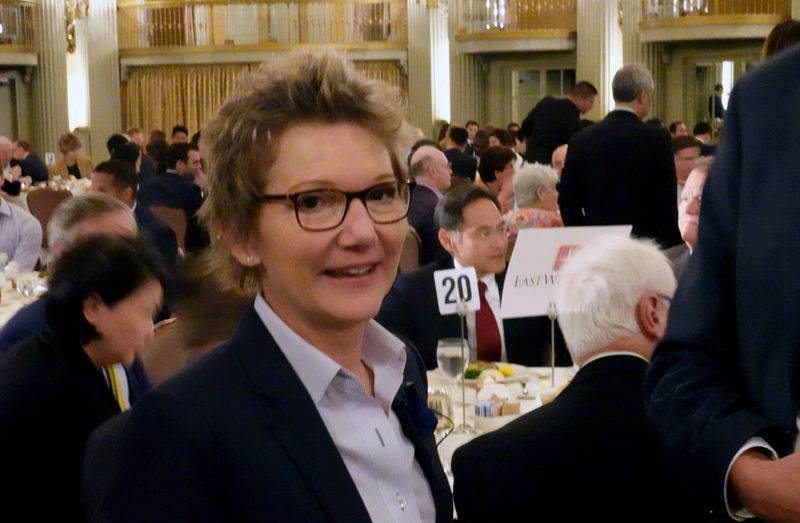(Reuters) - The Federal Reserve needs to slow the U.S. economy and take the heat out of the strong jobs market to bring down corrosively high inflation, San Francisco Fed chief Mary Daly said on Thursday, but it doesn't need to trigger a recession to do so.
The Fed last week delivered a third-straight 75-basis-point interest rate increase, lifting its policy rate target range to 3%-3.25%, and signaled rates will likely rise to 4.4% by year end and to 4.6% in following months.
The U.S. central bank hasn't raised rates this sharply since the 1980s, which was also the last time inflation - now more than three times the Fed's 2% goal - ran higher than today. The Fed's rate hikes then plunged the economy into two recessions, including one that was particularly deep and painful, and analysts worry that this time won't be much different.
"Navigating the economy toward a more sustainable path necessitates higher interest rates and a downshift in the pace of economic activity and the labor market," Daly said in remarks prepared for delivery to Boise State University in Idaho, a view also expressed last week by Fed Chair Jerome Powell and several Fed policymakers since. "But for now, inducing a deep recession does not seem warranted by conditions, nor is it necessary to achieve our goals."
That's because, she said, households and businesses haven't so far built an expectation for ever-higher-prices into their mindset, unlike 40 years ago when inflation ran high for a decade before the Fed took decisive action.
Inflation this time around has been running above the Fed's target for about a year and a half.
Still, Daly said, the Fed cannot take well-anchored inflation expectations for granted, warning that the longer inflation stays high, the more likely it will undermine Americans' confidence in the Fed's ability to bring it down. That could force the central bank to take the kind of dramatic action it did in the 1980s -- jacking rates up well into the double digits, and plunging the economy into a tailspin.
Risks to a soft landing for the economy are "myriad," Daly said, and include ongoing COVID battles, the war in Ukraine, a recession ahead for Europe, and central banks globally tightening policy.
These risks, along with persistent supply chain issues, "robust" consumer spending, and a strong labor market marked by low 3.7% unemployment, "narrow the path for a smooth landing," she said. "But they do not close it."

Daly devoted the bulk of her speech to laying out how damaging inflation is to households and businesses, and making the case that slowing the labor market now is better for Americans in the long run.
The Fed will, she said, need to pay close attention to the economic data so it doesn't do either too much or too little. "History tells us that the costs of errors are high," she said.